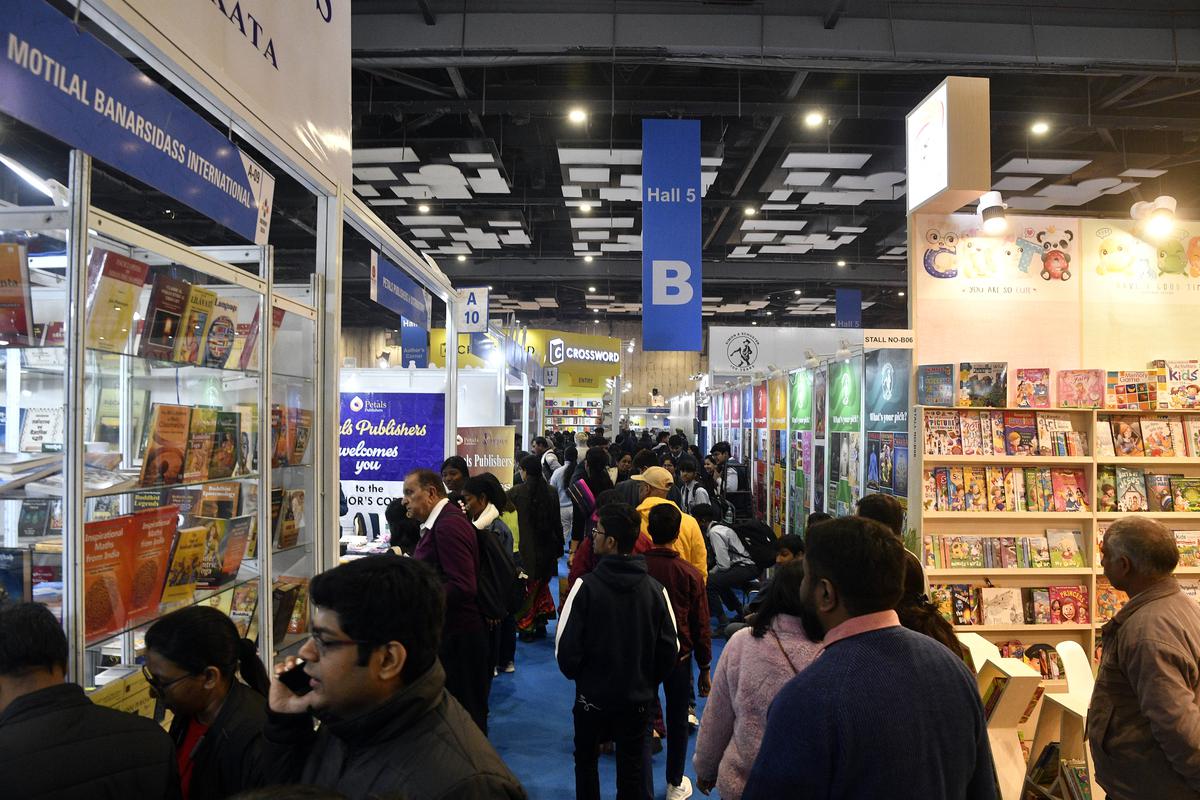For 50 years now, the New Delhi World Book Fair (NDWBF) has brought together thousands of book lovers, readers, authors, publishers, scholars, educationists, students and literary enthusiasts from all over the world. This year too a mammoth crowd has been gathering at the newly constructed International Convention Centre at Pragati Maidan — home to the nine-day long World Book Fair-2024.
Over the past seven days nearly 15 lakh visitors have roamed the colossal venue where more than 1,000 publishers from 40 countries including United Kingdom, Argentina, Spain, France, Turkey, Iran, Italy, UAE, Nepal, Bangladesh and more, have put up 2,000-plus stalls.
Organised by the National Book Trust (NBT) under the Ministry of Education, this year’s book fair celebrates the mosaic of Indian languages under the theme Bahubhashi Bharat – Ek Jeevant Parampara (Multilingual India – A Living Tradition), with the Kingdom of Saudi Arabia as the guest country fostering cultural exchange, literary discourses, and dialogues among the two nations.
Prof. Milind Sudhakar Marathe, Chairman, NBT-India, says the NDWBF is a platform for promoting intellectual dialogue and readership.

Visitors to the Delhi Book Fair 2024 at Pragati Maidan
| Photo Credit:
SHIV KUMAR PUSHPAKAR
Anindya Chatterjee, who migrated from Kolkata to the capital for work remembers book fairs as the apex of childhood magic. He has not missed a single edition of the NDWBF in the last 30 years. “I am delightfully blown away by how it gets bigger each year; the extensive display of books across genres, the huge halls throughout the expo, the diverse crowd, invigorating sessions and a host of other cultural activities,” he says.
“It is the beauty of the NDWBF,” says NBT director Yuvraj Malik, “where the inherent fabric of India’s unity manifests itself through its diverse spectrum of languages, dialects and cultures, but one expression. The melting pot of art, literature, knowledge and culture here appeals to national and international audiences.”
The fair is divided into special zones hosting 500 academic discussions, book launches, meet-the-author corners and networking opportunities with publishers and exhibitors to push and contribute to the rising literary interest among populations and use Artificial Intelligence (AI) to expand the publishing business across nations.

Vignettes from the New Delhi World Book Fair 2024 at Pragati Maidan
| Photo Credit:
SPECIAL ARRANGEMENT
This year an e-learning platform, ‘Jaadui Pitara’, in line with the National Education Policy (NEP) 2020, was unveiled. Comprising puzzles, riddles and stories, the inclusive and informative content, translated into 22 languages using AI is aimed at transforming childhood education. Several special modules aligned with NEP 2020, teaching-learning resources and subject-specific modules have also been launched. “We are committed to the objective of developing a reading culture in the country; an e-library platform is available to everyone to download books of their choice,” says Malik.
Aesthetically designed installations at the theme pavilion showcasing the evolution and heritage of Indian languages and scripts, and the Children’s Pavilion focussing on shaping future writers of multilingual India through storytelling sessions, illustration and writing workshops have piqued the interest of visitors.
“The book fair transforms into both creative and business opportunities for visitors of all kinds,” Malik adds.

Visitors to the world book fair 2024 at Pragati Maidan
| Photo Credit:
SHIV KUMAR PUSHPAKAR
(At Halls 1 to 5, International Convention Centre, Bharat Mandapam; Till February 18; 11am to 8pm. Tickets – ₹20 per adult and ₹10 per child — available at the venue, at select Metro stations and online at official website of ITPO and National Book Trust. Entry is free for children in school uniform, senior citizens, and the differently-abled. Tickets are available online at ITPO’s website, and at select Metro Stations)

COMMents
SHARE